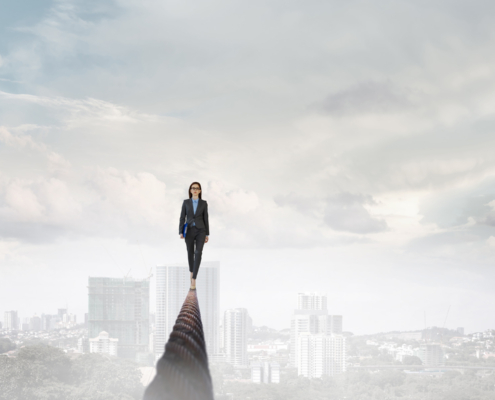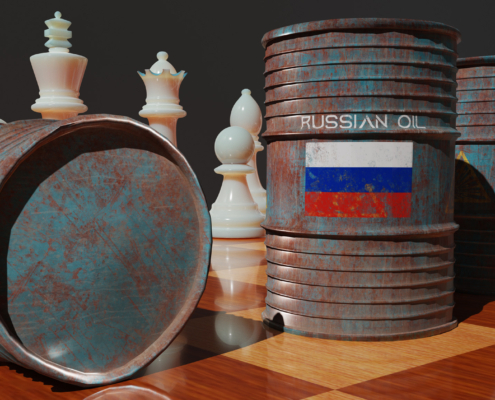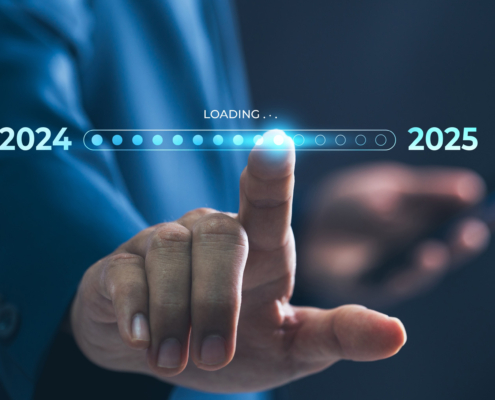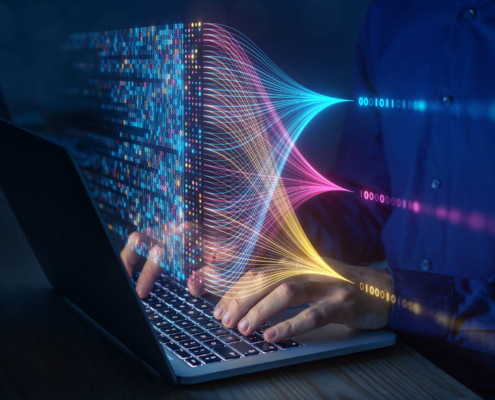
June 2025 Sanctions & Export Controls Update
Explore this month’s Sanctions and Export Controls Update, highlighting IFI’s take on key developments from June 2025.

Lessons From Russia & Iran – What EU Sanctions Teach Us About Policy in Action
The EU’s Russia and Iran sanctions programs demonstrate using sanctions as strategic tools of influence, while also exposing the challenges in enforcement and importance of global coordination.

False Flags, Fake Docs, and Fraudulent Routes
Russia continues to evade the $60 per-barrel price cap on its seaborne oil shipments. What can financial institutions engaged in documentary trade in the energy sector and other industry stakeholders do to mitigate their risks?

Russia: Slew of Sanctions
Explore the highlights from our most recent webinar about Russia sanctions. What happened in 2024, how has the regulatory atmosphere changed, and how will the sanctions environment evolve in 2025?

Walking the Sanctions Tightrope
In today’s fast-evolving regulatory landscape, sanctions compliance can feel like an uphill battle. This guide explores the key challenges compliance officers face—ranging from multi-jurisdictional rules to cryptocurrency complexities—and offers practical tips to stay ahead.

Examining Evasion
Explore three recent examples with Russia, Iran, and North Korea, which represent some of the most common methods illicit actors have embraced to evade sanctions. Understanding them is an important starting point for private sector firms in assessing and responding to their exposure.

Biden Takes Final Shot at Russia’s Energy
The Biden administration on January 10, 2025, imposed the most severe sanctions on Russia’s energy sector since the start of Russia’s full-scale invasion of Ukraine. What should financial institutions and other firms know about these new designations, and how can they mitigate their risks?

2024’s Top 10 Major Developments
Explore the highlights from our recent webinar including an overview of the current illicit finance landscape, major events in 2024 as well as noted possible future developments as the global illicit finance regime grows and evolves.

Sanctions in 2024: Global Pressure Points in the UN, U.S., EU, and UK
In 2024, the UN, U.S., EU, and UK ramped up sanctions targeting Russia, Iran, and conflict zones, focusing on critical sectors like energy, defense, and technology. In this article, we explore these coordinated efforts aimed at weakening adversarial regimes while navigating complex compliance and humanitarian challenges.

Targeting Russia’s IT Dependencies
Delve into the recent determination issued by OFAC, which imposes significant additional restrictions on the provision to Russia of IT consultancy and design services as well as IT support and cloud-based services of enterprise management and design and manufacturing software. Multinational tech corporations, financial institutions, and other companies still operating in Russia will likely require licenses to continue operating there.
